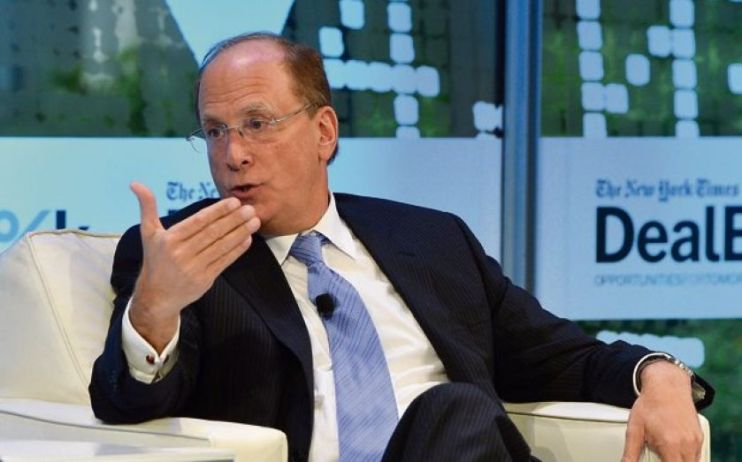Blackrock must face up to its failures on ESG

With multi-billion dollar greenwashing scandals unfolding across America, the ESG industry is facing a severe reckoning, says Blackrock’s former chief sustainable investment officer Tariq Fancy
On April 18, this newspaper published an interview I gave entitled “ESG is dying – but that might be a good thing.” It traced market events since I began arguing publicly in 2021 that the ESG industry is evolving into a wasteful mess that misleads investors, does little to nothing for society and may be remembered primarily as a dangerous placebo that harmed the public interest.
Since I began making these arguments publicly three years ago, the ESG industry has faced a severe reckoning. Greenwashing scandals have unfolded in North America and Europe, involving dramatic police raids, multi-million dollar fines, and CEO resignations. Fund flows, which peaked in 2021, flipped negative for the first time in the final quarter of 2023 — likely because the returns thesis has fallen apart completely, as ESG funds have broadly underperformed market benchmarks. Even the academic space, usually a lagging indicator, is now undergoing a reckoning, with some of the most widely-cited papers linking ESG to market outperformance now debunked.
So it was little surprise that City A.M. requested an interview to discuss ESG’s “reckoning” with me. But it was a major surprise to read that Blackrock, my former employer, responded for the first time ever. What has Blackrock got to say about an industry it promoted as a part of decarbonizing the global economy, yet was later exposed as mainly greenwashing? We will never know, because Blackrock’s answer was to deflect back onto me, with a spokesman telling The Telegraph that: “We will continue to manage that money consistent with their long-term goals and objectives, not those of Tariq Fancy.”
The last twelve months have seen temperature records smashed across the globe, landmark warnings from climate scientists, and increasing evidence that warming may be occurring faster than we expected.
This is not a Blackrock issue, but it is an industry issue – and a planetary one. Blackrock is a collection of legal obligations and financial incentives, with a focus on shareholder returns as its primary purpose. Yet its CEO Larry Fink is more than that: he is a citizen in a democracy.
At this exact moment, in a race against time, it is dangerous to spew discredited ideas. This includes bankrupt ‘free market’ theories that seem at this point little more than loosely disguised forms of intergenerational robbery. This serves neither the long-term public interest nor, by extension, the interests of Blackrock’s younger employees and its long-term shareholders. And in a sleight of hand that epitomises the insultingly hollow nature of business leaders’ vacuous promises to ethics and responsibility today, Mr Fink has shown no accountability for his words. Indeed, as if to throw a banana peel of misinformation over his shoulder, shrug, and walk away, he even refuses to use the acronym ESG anymore!
Let us be clear. This is not a left versus right issue. Nor anti-capitalist – it’s being made by a former investment banker with an MBA! This is about honesty and integrity. The system depends on trust. Ensuring political stability requires fixing public trust in government, not turning a blind eye to its failures as we pretend to accept vague marketing pledges from the private sector to do better – a promise that often comes from many of the same players that facilitate and benefit from the dysfunction of government today.
The Fink model of the world is like a competitive sport where the players that benefit from playing dirty for decades propose to self-police going forward, notwithstanding their poor track record and short-term incentives. Somehow my suggestion that standard economics principles should apply today – including conversations on updated and coordinated taxes and regulations that are curiously underemphasized by Schwab and Fink at Davos – was not taken seriously.
Yet our politicians have even shorter time horizons. And those in the US seem to respond more to powerful interests than principle, not least because of what Harvard Law School Professor Lawrence Lessig calls the “dependence corruption” wherein the average US Congressperson spends up to 70 per cent of their time fundraising. Today we are treated to the spectacle of billionaires openly using their clout to determine US President candidates, vice-candidates, and funding their preferred horses onto victory in what may be the most pivotal election global democracy has seen in decades.
The Supreme Court’s inane 2010 Citizen’s United decision enables potentially limitless and traceless payments to support electoral candidates to be hidden from public view. Blackrock takes advantage of this and, through its stewardship function, helps other US companies to do the same. Should we really trust an athlete’s promise to usher in a new era of clean play and good sportsmanship (aka ‘stakeholder capitalism’) when they also insist on hiding secret payments to the refs behind the scenes?
If there are societal fissures at play, they are top-versus-bottom, pitting the oldest and richest against the youngest and poorest, rather than left-versus-right. Somehow ‘greed is good’ has gone from invoking enlightened self-interest to a very unenlightened, irresponsible form that makes hollow promises on issues so important to younger generations that many Gen Z and Millennials, who now comprise the majority of the workforce, no longer believe in capitalism. That doesn’t sound very sustainable to me.
Mr Fink, I think BlackRock’s PR team has confused the words publicity and accountability. But if you must accuse me of seeking publicity, then fine, I accept the charge.
Perhaps we are both well named for this epic non-debate.
Tariq Fancy is former chief sustainable investment officer at Blackrock